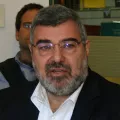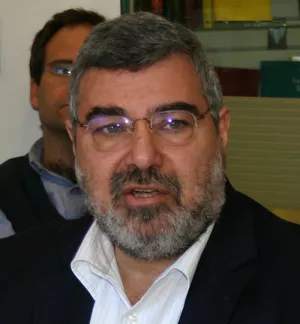DUBAI -- In the past few weeks I have had the pleasant and instructive experience of mixing with hundreds of mostly young Arabs at events in Doha, Dubai and Beirut that were related in one way or another to a fascinating new wave that seems to be gaining momentum as it moves across the region: entrepreneurship. This is a reason for both hope and concern, because entrepreneurship could either turn out to be a great boost that shatters old ways and propels a tired Arab world forward, or it could be another false hope that is unrealistically burdened with more expectations than it can handle.
The concern for now is that too much emphasis may be put on economic and social entrepreneurship as the savior movement that modernizes and rejuvenates the Arab world. High hopes similarly were pinned on other phenomena that did not deliver on their promise to the Arab people, like democracy and human rights movements, civil society development, good governance, poverty reduction or women’s rights.
There is reason for hope, though, because a generation of young Arabs is in the process of applying new mindsets and activism that may eventually turn this region on its head – a useful inversion, I’d add, given the turbulent and often mediocre condition of many parts of the contemporary Arab world. When you spend time with dynamic young Arabs who are in college or high school, working as employees, or creating their own companies, social movements or civil society organizations, you quickly appreciate, as I have repeatedly in recent years, that there is much hope for this region to fix its problems, plug its gaps, lighten its distortions, and finally tap the enormous energy that is still trapped inside 350 million Arabs who are only using part of their brain. Young Arabs often think and see the world differently, and then they react and act differently than did their parents and grandparents. This is not happening everywhere among most people yet, as the majority of Arab youth correspond to what we would call a silent majority that follows traditional patterns of behavior, sharply defined and constrained by what adult society thinks a young person should and should not do in society. This is not a cultural pre-revolutionary situation as happened with youth in Europe and North America in the 1960s.
Rather, the important new development is that pockets -- sometimes very large and dense pockets -- of young people throughout the entire region are thinking and behaving in novel ways. A small but growing mass of mostly young Arabs is now taking initiatives in its home societies and exploring how they can shape their world and its future, rather than simply asking their governments to do more for them or asking foreign governments to promote justice. This is evident in three main arenas: business and economics, high tech and information communications technology, and culture/arts and civil society. A few young strays or daring commandos sneak into government service now and then and drive an innovative spear through the heart of some tired old bureaucracy, but that remains the exception to the rule that enterprising young Arabs are doing their deeds mostly outside the public sector for now.
Two critical reasons may explain this novel and still evolving reality. One is the fact that millions of young Arabs today are unable to get a quality education that leads to decent work that generates sufficient income to live reasonably and ultimately get married and raise a small family. This generation of youth often finds itself balancing on the edge of mild desperation -- today paying the full price for the deep and chronic weaknesses of mismanaged Arab economies that never focused enough on generating productive sector employment in the last 40 years, because central governments allied with local and foreign security sectors maintained full control of how society developed and what its citizens learned, thought, said and did.
The second reason for the emerging entrepreneurial spirit of many young Arabs is that they have the technical capacity and opportunity -- mostly via electronic digital technology -- to express themselves, reach out and connect with others, and initiate money-making endeavors. Arabs aged 35 and below are the first entire generation to be raised in a digital world in which they can largely transcend the controls that their government placed on what they learned, thought, said and did. The web, satellite television and radio, cell phones, and other technologies already are converging into unified platforms that allow any person to engage meaningfully in society from any spot on Earth. Youth have broken through the barriers and constraints that kept them as silent and passive members of society, and may well soon start making practical contributions – private businesses and social movements, in particular -- that could gradually pull our region into the modern world. When youth activism intersects with politics, then we can expect real change to happen. That day may be imminent.
Rami G. Khouri is Editor-at-large of The Daily Star, and Director of the Issam Fares Institute for Public Policy and International Affairs at the American University of Beirut, in Beirut, Lebanon.
Khouri, Rami. “Take Note of Arab Youth Activism.” Agence Global, November 10, 2010


